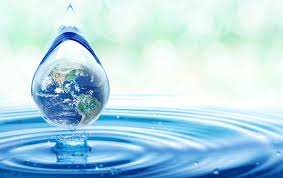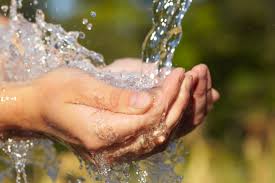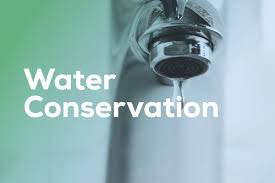Water conservation refers to the responsible and efficient use of freshwater resources to reduce wastage and ensure the sustainable availability of clean water for current and future generations.
It involves various practices and measures aimed at reducing water consumption, minimizing pollution, and preserving natural water sources such as rivers, lakes, and aquifers.
Water is essential for all life on Earth, and it’s a limited resource. That’s why we need to be smart about how we use it. Water conservation is the key to ensuring there’s enough clean water for everyone now and in the future.
Why Water Conservation Matters
1. Preserving Our Planet: Earth is often called the “blue planet” because of its oceans and waterways. But did you know that less than 1% of Earth’s water is available for us to use? The rest is saltwater in the oceans or frozen in glaciers. By conserving water, we protect this precious 1%.
2. Saving Money: When we use less water, we also pay less on our water bills. Fixing leaks and using water-saving appliances can lead to significant savings over time.
3. Helping Ecosystems: Our rivers and lakes are home to many plants and animals. Conserving water means we can maintain healthy habitats for these creatures.
Ways to Conserve Water
1. Fix Leaks: A dripping faucet can waste gallons of water every day. Fixing leaks is an easy way to save water and money.
2. Use Water-Saving Appliances: Look for low-flow toilets, showerheads, and washing machines. They use less water without sacrificing performance.
3. Turn Off the Tap: Don’t let the tap run while brushing your teeth or washing dishes. Every second the tap is on, water is flowing away needlessly.
4. Collect Rainwater: Install a rain barrel to collect rainwater for your garden. This reduces the need for using treated tap water on plants.
5. Water Wisely: Water your lawn and plants early in the morning or late in the evening when it’s cooler. This reduces evaporation, so your plants get more water.
Why Should You Care?
Conserving water is not just a responsibility; it’s an act of kindness towards future generations. Imagine a world where clean water is scarce. By practicing water conservation, you can help ensure that this never becomes a reality.
Water conservation is a small effort that can lead to big results. It’s a way for all of us to protect our environment, save money, and make sure there’s enough water to go around for everyone.
Raed Also: Sustainable Waste-to-Energy Business Ideas
The Importance of Water Conservation

Water is a precious resource that sustains all life on Earth. We rely on it for drinking, agriculture, industry, and countless other daily activities. Despite its importance, clean and accessible water is becoming scarcer in many parts of the world. This is why water conservation is important;
1. Preserving the Environment: Water conservation helps protect our natural world. Lakes, rivers, and wetlands are vital habitats for countless plants and animals. When we use water wisely, we maintain these ecosystems, ensuring the survival of diverse species.
2. Ensuring Clean Drinking Water: Conserving water reduces the burden on water treatment facilities. The less water we use, the easier it is to purify it for drinking. Clean water is essential for our health and well-being.
3. Addressing Water Scarcity: Many regions face water scarcity due to climate change, population growth, and mismanagement. By conserving water, we stretch available supplies further, preventing shortages.
4. Saving Energy: Water and energy are closely connected. It takes energy to pump, treat, and heat water. When we use less water, we also reduce our energy consumption, which is good for the environment and our wallets.
5. Protecting Future Generations: By conserving water today, we ensure that future generations have access to this essential resource. It’s a responsibility we owe to our children and grandchildren.
6. Economic Benefits: Water conservation can lead to cost savings. By using water-efficient appliances, fixing leaks, and adopting smart irrigation practices, households and businesses can reduce their water bills.
7. Mitigating Drought Impact: During droughts, water conservation becomes even more critical. Conserved water reserves can help communities endure dry spells without severe disruptions.
8. Sustainable Agriculture: Agriculture is a major water user. By promoting water-efficient farming practices, we can produce food while using less water, ensuring food security for the world’s growing population.
Water is a finite resource, and its importance cannot be overstated. The responsible use of water through conservation is not just a choice but a necessity. It’s a collective effort that benefits us now and safeguards our planet for generations to come.
Read Also: A Guide to Understanding Climate Change
Easy Ways to Conserve Water

Water is a precious resource, and conserving it is something we can all do to make a big difference. Here are some simple and effective ways to conserve water in our daily lives:
1. Use Water-Saving Appliances: Look for appliances like low-flow toilets and showerheads. They use less water without sacrificing performance. High-efficiency washing machines also help conserve water.
2. Shorter Showers: Taking shorter showers can save a significant amount of water. Try to limit your shower time to around 5-10 minutes.
3. Turn Off the Tap: Don’t leave the tap running when you’re not using the water. For example, while brushing your teeth or scrubbing dishes, turn off the tap until you need it.
4. Collect Rainwater: Consider setting up a rain barrel to collect rainwater. You can use this water for your garden, reducing the need for treated tap water.
5. Water Wisely: When you water your garden or plants, do it early in the morning or late in the evening when it’s cooler. This reduces evaporation, so your plants get more water.
6. Only Run Full Loads: Whether it’s your dishwasher or washing machine, wait until you have a full load before running them. This way, you use water more efficiently.
7. Reuse Water: You can reuse water from cooking pasta or vegetables to water your plants. Just let it cool down first.
8. Sweep, Don’t Hose: When cleaning driveways or sidewalks, use a broom instead of a hose. Hosing down these areas uses a lot of water unnecessarily.
9. Be Mindful of Pool Water: If you have a swimming pool, cover it when not in use to reduce evaporation. Also, regularly check for leaks to prevent water loss.
10. Educate and Share: Spread the word about water conservation. Encourage your friends and family to adopt these practices too. Every person making a small change can have a big impact.
Water conservation is something we can all participate in, and it starts with small changes in our daily routines. By implementing these simple practices, we not only save water but also contribute to a sustainable and greener future for our planet.
Read Also: A Beginner’s Guide to the DIY Cornhole

